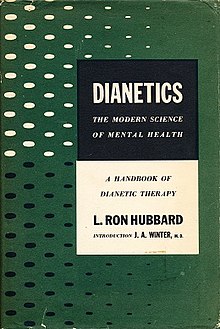The Greatest Guide To Dianetics
Wiki Article
Dianetics Can Be Fun For Everyone
Table of ContentsAll about DianeticsSome Known Details About Dianetics Dianetics Things To Know Before You Get ThisDianetics Can Be Fun For Anyone
I couldn't ever not desire to get anything that comes to mind for you- if it was otherwise, I would not be sitting right here with you, doing this. I not only could never ever have an issue, or not wish to hear something that comes to mind for you, but I'm entirely anxious to recognize every concept, every idea, every photo or sensation that emerges or shows up for you- don't ever believe or else, and if for some factor you do, please simply allow me understand! Occasionally, you might have a thought, and photo, concept or incident appear that does not seem to answer the concern, or associate with it, but nevertheless, always do tell me regarding it, and as we proceed, the relevance will arise for you.This is inherent in the basis of handling, and the topic of this discussion: the standard duties of the therapist and the client: The standard function of the therapist is, contrary to "basic training", not to regulate, which means to enforce and/or hinder, yet to instead function from the basis of EMPOWERING THE CLIENT.

More About Dianetics
John Mcmasters expressed this standard reality incredibly well in one of his talks on Power handling, wherein he explains how he was asked what this "unique knack" was that he had for providing such fantastic sessions; he needed to think regarding that for a minute, and found that it was what he had not been doing, along with what he was doing: he wasn't assessing, judging, computer, or in reality, creating any thoughts, allow alone verbal expressions, after offering the command and while waiting on the PC to complete their solution to their complete satisfaction; he was, merely and only, existing with the PC, and entirely interested.The duty of the counselor, demonstrated; that was his "special knack". I have actually had my very own experience which educated me this well, extremely at an early stage in the game. In 1982, having actually lately finished my training and internship on New Age Dianetics, I was running this on a COMPUTER, and there was a factor in the session where (being a bit wet behind the ears not yet having lots of hours under my belt as an expert auditor) the PC seemed to be "taking too long" to reveal anything verbally after I provided him a command.
This key transformed out to be the most valuable contribution that John ever before made to the subject of therapy or auditing (Dianetics). In my modest opinion, it is the best contribution that anyone has ever made to these subjectsthe application is completely non-judgemental, non-evaluative, and without any type of tip, suggestions or opinion.no preconditioned agenda for people, or 'degrees' that they have to do
In Scientology we prided ourselves on not examining for people. All that truly see here now meant was that the auditor did not Vocally evaluate for the PC in session.
The 7-Second Trick For Dianetics

Any individual who had actually ever before seen John audit could not aid however discover a distinct high quality in his bookkeeping."The client's standard function is to be there with the function of relocating the direction of their spiritual objectives, and to easily and totally express and experience whatever shows up for them in answering the questions and implementing the guidelines in the handling.
This is something to process as needed. However likewise, people frequently have previous experience and/or indoctrination in auditing/processing which, somehow, and to some levels, really deceives them right into attitudes, concepts and actions patterns that stop the complete understanding of these functions, therefore they will certainly have a tendency to hinder the expressing of what comes to mind, as in the examples given over. * The very first, and maybe primary instances of mis-indoctrination resulting in less than completely smooth and reliable sessions, can be found in specific facets of the training routines, or "TR's":"TR's" are usually an individual's first, or at the very least early, experience in Scientology, and while I will certainly take place to explain what I see as the problems in idea and technique, however, tend to be significantly restorative, done as they are offered (Hubbard firmly insists that "TR's are not refining, they are educating", however factually, they are both handling AND training)
Alan Walter made comparable monitorings, and enhanced these with his "Visibility look what i found Processes". There is no "failing", and no rejection of the truth of this being handling. The focus, as it should be, gets on experiencing the other individual's visibility. All the manifestations which obtain a "fail" in doing "TR-0" are merely the being's efforts to withstand the other person's presence, and as opposed to being harassed and badgered with "Flunk", which imposes "failure!" on the being, one simply needs to be encouraged to "stick their feet in the water a little much deeper", to progressively refurbish their capability and readiness to fully share and experience "being below", or "presence", with others.
The Best Strategy To Use For Dianetics

Report this wiki page